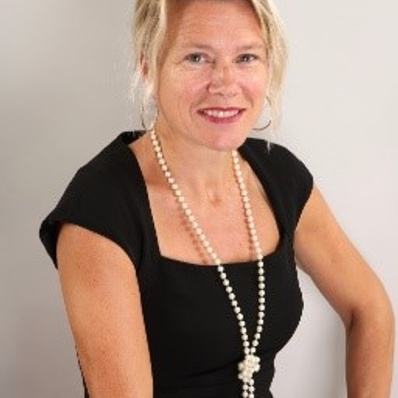Seminar synopsis
This seminar aims to revisit and challenge the status quo of the business and management research methodology terrain by presenting innovative, emergent and occluded alternative and original ways of conducting research on, and within, organizations and organizational contexts. Conventions and orthodoxies govern many domains and that of business and management academia is no different. In terms of dominant research, methodological approaches, papers and publications are frequently pushed to adhere to particular styles and ‘rules’ of variously inductive or deductive approaches in order to comply with journal and academy norms and expectations. Some argue that this risks epistemological regurgitation and stagnation and produces a monotone appearance of research. Perhaps more importantly, we are quite often left thinking: ‘okay the paper has followed all the roles and conventions and technically is an excellent paper, but ‘so what?’ In other words, really what new do we learn and how does this move knowledge forward in a sincere and impactful way? The seminar draws together a blend of established and mid-career research work to consider their ideas and the state and progress of research methodology in the academy and academic careers.
Programme
Session 1
9.00-9.15 introductions and welcome
9.15 - 9.45 speaker 1/ 9.45-10.00 speaker 1 Q&A
Dr Simon Smith, Oxford Brookes University (UK)
Dynamic qualitative research: The impact of being different
10.00-10.30 speaker 2/ 10.30-10.45 speaker 2 Q&A
Prof Jessica Lichy, IDRAC (France)
Visual Ethnography
Outline – The focus is on how we can collect data using (i) Rich Picture Technique (RP) based on sketches produced by the participants, and (ii) auto-driven photo elicitation interviews (PEI) where photographs are taken by the participants themselves and brought to the interview, to explore their thoughts and experiences.
Lichy, J. (in press). ‘Managing consumption for a cleaner future … but what’s in it for me?’, Question(s) de Management. Article [202063]
Lichy, J. & McLeay, F. (2018). Bleisure: motivations and typologies, Journal of Travel & Tourism Marketing, 35(4), 517-530.
http://dx.doi.org/10.1080/10548408.2017.1364206 Winner of the ‘2018 JTTM Martin Oppermann Article of the Year’ Award.
10:45 - 11: 00 break
11.00.11.30 speaker 3 / 11.30 -11.45 speaker 3 Q&A
Prof Jill Johnes, University of Huddersfield (UK)
Efficiency Measurement and Applications
Outline: Efficiency measurement is routed in the costs and production literature. This presentation provides an overview of the efficiency measurement research methodology drawing on empirical applications in both public and private sectors.
Johnes, J. (2021). ‘Applications of Production Economics in Education’, in Handbook of Production Economics: Survey of Applications. Ray, S. C., Chambers, R. G. & Kumbhakar, S. C. (eds.). Singapore: Springer Singapore, p. 1-47 47
Izzeldin, M., Johnes, J., Ongena, S., Pappas, V. & Tsionas, M. (2021). ‘Efficiency convergence in Islamic and conventional banks’, Journal of International Financial Markets, Institutions and Money, 70, 24 p., 101279.
11.45-12.15 speaker 4/ 12.15-12.30 speaker 4 Q&A
Assoc. Prof Seun Kolade, De Montfort University, (UK)
The Case for Transdisciplinarity
Outline: this session explores how transdisciplinary projects provide unique opportunities for scholars across a wide range of disciplines to generate new research designs and hybrid methodologies from the pool of expertise and perspectives in the project team. We will also explore how the boundary-spanning synergies created in such projects can be better suited to tackling complex societal problems and generating outputs that are more robust and original, more accessible and more relevant to industry stakeholders and non-academic audience.
Kolade, O., Smith, R., Obembe, D., Taiwo, A., Eyong, J., James, S., & Kibreab, G. (2022). Picking up the pieces: social capital, psycho-social support and livelihood recovery of displaced populations in Northeast Nigeria. Journal of Development Studies. https://doi.org/10.1080/00220388.2022.2032669
Oyinlola, M., Schröder, P., Whitehead, T., Kolade, O., Wakunuma, K., Sharifi, S., et al. (2022). Digital innovations for transitioning to circular plastic value chains in Africa, Africa Journal of Management, 0 (0), pp. 1–26. https://doi.org/10.1080/23322373.2021.1999750.
12.30-1.30 lunch break
Session 2
1.30-2.00 General chaired review discussion on the morning sessions between all speakers and attendees
2.00-2.30 speaker 5/ 2.30-2.45 speaker 5 Q&A
Dr Viktor Dorfler, Strathclyde University, UK
Insider Insight: The Importance of Bracketing
Outline: this talk builds on 5 qualitative studies within a phenomenological framing, conducted in settings of science, haute cuisine, banking, and neurodiverse population. The investigated topics include intuition, creativity, threshold concept, and AI ethics.
Viktor Dörfler & Colin Eden (2014) Research on Intuition using Intuition, Sinclair, Marta (Ed.) Handbook of Research Methods on Intuition, Edward Elgar Publishing, Cheltenham, UK, 264-276. DOI: 10.4337/9781782545996.00031
Viktor Dörfler & Marc Stierand (2021) Bracketing: A Phenomenological Theory Applied Through Transpersonal Reflexivity, Journal of Organizational Change Management, 34(4): 778-793. DOI: 10.1108/JOCM-12-2019-0393
2.45-3.15 speaker 6/ 3.15-3.30 speaker 6 Q&A
Prof Tony Wall, Liverpool John Moores, University, UK
Yoko Ono and the Performative Peculiarities of Practice-as-Research
Outline: Can you imagine a world where screaming in a museum (cf. Voice piece for Soprano) or where the public is asked to place a wish on a tree (cf. wish tree) – in themselves –answer a research question? This session explores the peculiar world of practice-as-research where artworks are – in themselves – committed to the provocative creation and critique of ‘performances’ (the rituals, habits, everyday acts as well as what they embody and how they implicate). The session draws from a 4 year-long international project and entertains possibilities about how practice-as-research might present itself in business and management research.
Wall, T. (2022) 3 mins for slow work, online China, India, Pakistan, London, 23rd March.
Wall T, Clough D, Österlind E, Hindley A. (2018). Conjuring a 'Spirit' for sustainability: A review of the socio-materialist effects of provocative pedagogies, Sustainability and the Humanities, Cham, Springer. https://doi.org/10.1007/978-3-319-95336-6_17
3.30-3.45 break
3.45 - 4.30
General summative discussion/Q&A
4.30 close
___________________________________________________________________________
Provider Information
BAM Research Methodology Special Interest Group
__________________________________________________________________________
Who Should Attend?
The event speaks to Sections A2, A3, B2 and C2 as detailed in the BAM Framework
___________________________________________________________________________
Speakers
Dr Simon Smith, Oxford Brookes University
Convening team
- Professor Peter Stokes - De Montfort University
- Dr Swati Virmani - De Montfort University
- Dr Victor Atiase - De Montfort University
- Dr Sue Cronshaw - Liverpool John Moores University
- Dr Danny Buckley - De Montfort University
________________________________________________________________
Benefits of attending
- Learn about innovative and alternative approaches to research
- Understanding new ways to address research gaps and problems
- Developing inter-disciplinary/cross-disciplinary insights
- An opportunity to reflect on and discuss the status quo of the academy and develop possible responses
__________________________________________________________________________
Contact
Please contact the BAM Office at [email protected] with any queries.
___________________________________________________________________________
Event Fee
Free for BAM Members and Student Members
Non-Members: £30
Student Non-Members: £20
To become a member, please follow the link: BAM Membership
___________________________________________________________________________
Registration closes on 27th June 2022 at 17:00 UK time





